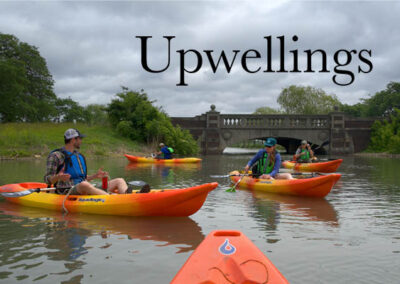
Michigan Sea Grant will receive federal support for two aquaculture projects through a newly announced NOAA Sea Grant funding release.
To further support sustainable U.S. aquaculture, NOAA Sea Grant selected 33 projects totaling $8,821,710 in fiscal year 2024 federal funding. The projects span coastal and Great Lakes states and territories with a focus on enhancing aquaculture species production, boosting aquaculture literacy and knowledge sharing, and strengthening aquaculture research and extension capacity.
“Supporting sustainable, domestic seafood production, through aquaculture, is a key component to a thriving, blue economy across the U.S.,” said Jonathan Pennock, director of NOAA’s National Sea Grant College Program. “Sea Grant will continue to work alongside communities to gather and share aquaculture-related knowledge that helps the industry and the environment.”
Thanks to the funding announcement, Michigan Sea Grant and key partners will receive a fresh round of support for two ongoing projects.
The Great Lakes Aquaculture Collaborative (GLAC) provides science-based information, resources, and expertise to aquaculture producers and consumers, educators and teachers, legislators and policymakers, and folks interested in raising, selling, eating, and stocking fish and other aquatic organisms in the Great Lakes region. GLAC represents a partnership among Sea Grant programs for Minnesota, Michigan, Illinois-Indiana, Lake Champlain, New York, Ohio, and Wisconsin, as well as the National Sea Grant Law Center.
The $750,000 award will empower the GLAC team, coordinated by Minnesota Sea Grant, to expand state-based advisory groups and increase aquaculture literacy of consumers, youth audiences, regulators and legislators. GLAC will also work with industry to market locally produced, farmed, and wild-caught seafood. Michigan Sea Grant Extension educators Lauren Jescovitch and Elliot Nelson will continue to spearhead GLAC’s activities in Michigan.
An important theme throughout this project is that the aquaculture and commercial fishing industries are intertwined and that both are important to the Great Lakes food system. Additionally, the team’s activities will intentionally focus on diversity, equity, and inclusion and will include tribal organizations and schools that serve historically marginalized communities.
Michigan Sea Grant will also receive $30,000 to enhance work already in progress by graduate research fellow Santosh Lamichhane. Lamichhane is a PhD student in the College of Veterinary Medicine aquatic animal health program at Michigan State University. He is investigating the susceptibility of invasive carp species to two emerging viral infections that are co-circulating in Michigan in connection to carp aquaculture. The work will guide management agencies about the design of adequate containment strategies.
NOAA Sea Grant is committed to supporting aquaculture development nationwide to enhance economic resilience and food security in American communities. In 2024, Sea Grant developed a five-year (2024-2028) Aquaculture Investment Plan to guide its efforts in supporting aquaculture research, extension, and education. This plan is consistent with Sea Grant’s Sustainable Fisheries and Aquaculture focus area and the Sea Grant Network’s 10-year Aquaculture Vision, both of which support NOAA and Department of Commerce aquaculture goals.


